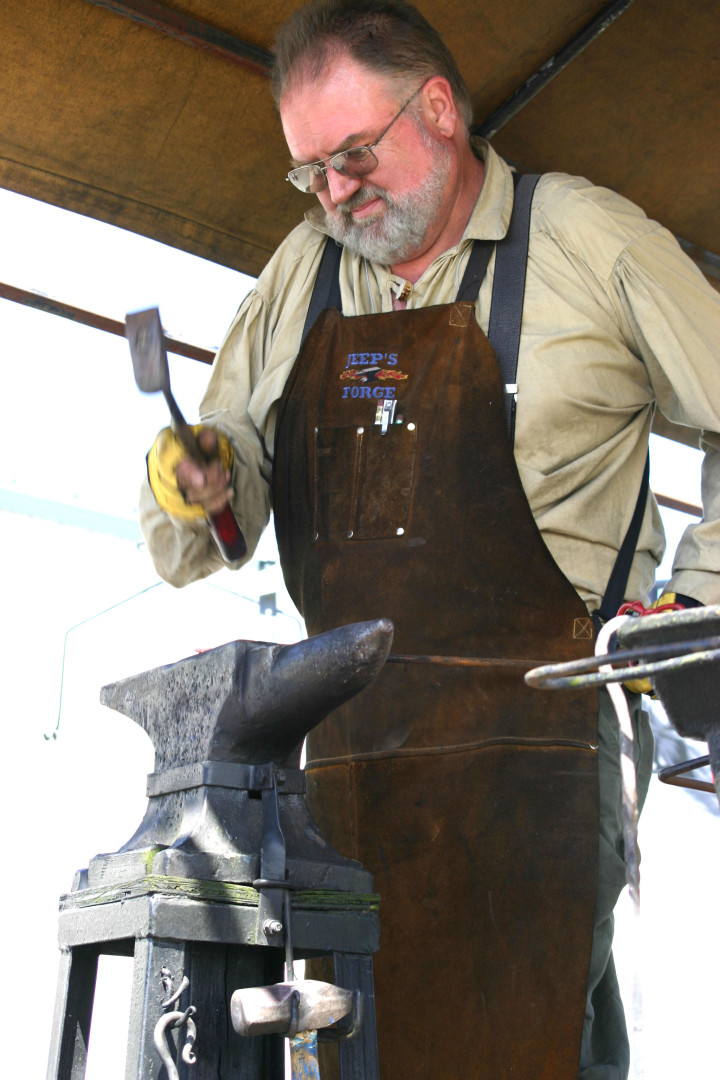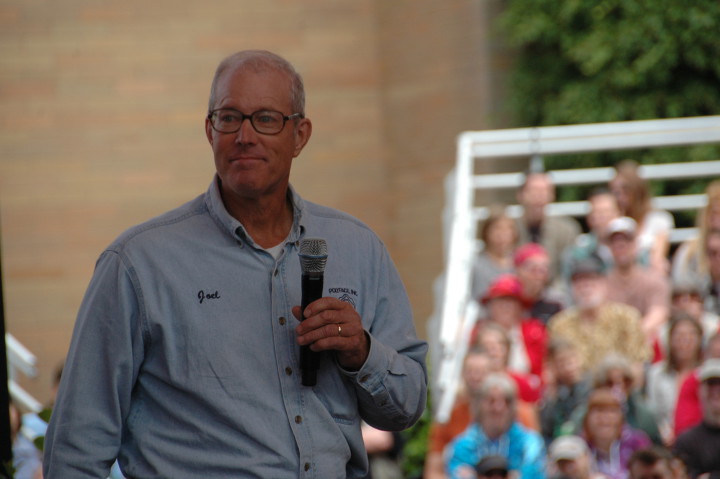
If you’re wondering how to grow your own food, make your own cider, cheeses, jams and jellies or even build a composting toilet, answers can be found at the Mother Earth News Fair, coming to the Western North Carolina Agricultural Center Saturday and Sunday, April 9-10.
Bringing the event to WNC is like coming home, says editor Hank Will. “Hendersonville was the birthplace of Mother Earth News — sort of the cradle from which we sprang,” he points out. “And there seems to be a real interest in sustainable living.”
Hands-on learning always been part of the program. From the mid-1970s to the mid-’80s, the magazine hosted thousands of visitors each summer at its 600-acre Eco-Village, where they could learn about everything from beekeeping to cordwood construction to experimental gardens, houses and energy projects.
The fair began in 2010 as a way to bring the magazine to life and carry its mission to different places around the country, Will explains. The initial event was held at Seven Springs Mountain Resort in Pennsylvania, a sister company, with new locations added each year. The 2016 edition will be presented at a half-dozen sites around the country between now and late October.
In the 1960s, notes Will, Western North Carolina’s cheap land and agreeable climate attracted people wanting to practice sustainable living, and many of them remain.
He believes such practices as organic farming and humanely raised, grass-fed meats are even more important today.
“There’s been such an increase in the use of chemicals since the 1970s,” says Will. “We’re dumping millions of tons of chemicals into the earth. We can’t keep doing that. We spray Roundup on our wheat just before harvest so it will dry more quickly.”
Unfortunately, he continues, most folks still don’t really understand the problem and its long-term consequences. And like Mother Earth News, which bills itself as the nation’s largest and longest-running sustainable living publication, the fair is meant to educate consumers.
More than 150 workshops and demonstrations will cover everything from fermenting vegetables to cheesemaking, basketry and soapmaking, living off the grid, getting the most out of a small garden and raising chickens. There’s even a workshop on distilling liquor legally at home.

Demonstrations will showcase such diverse skills as “Spinning Cotton on the Charkha or Gandhi Wheel,” “Blacksmithing for Your Homestead,” “Nonelectric Grain Grinding,” “Waterless, Greaseless Cooking” and “How to Make Seed Bombs.”
There’ll also be activities for kids, including a Treehouse Club where they can interact with chickens and dairy animals, make healthy foods, build with mud, plant seeds and more.
Noted author Eliot Coleman will present “Extending the Growing Season at Both Ends.” An organic farmer in Maine for many years, he’s written extensively on the subject. Interest in organic food is growing, says Coleman, because people are becoming more suspicious of industrial-farmed food. But it’s really nothing new: The idea of growing food without chemicals, he says, traces back to the 1890s in Germany, where lead arsenic was being used as a pesticide.
“Some of the chemicals altered the taste of food, and people noticed that their cabbage tasted like the sulfate ammonia that was being used on it.”
Today, industrial-farmed foods can seem flavorless or even bitter, notes Coleman, often because the plants have been bred for qualities other than taste. And meanwhile, chemicals are definitely still a factor.
“Getting the soil right is complex, but when you take the time to do it, food tastes better,” he maintains. “Carrots are sweeter, spinach doesn’t have a metallic aftertaste.”
From the start, says Coleman, the chemical industry has resisted the organic movement. When pioneering marine biologist Rachel Carson wrote Silent Spring in 1962, documenting the environmental damage done by pesticides, the chemical industry did all it could to discredit her.
“Now it’s about GMOs,” continues Coleman. “As long as foods don’t have to be labeled, the only way you can be sure you’re not getting GMOs is to buy organic food or organic seeds so you can grow it yourself.”
Will says he expects the fair to draw about 20,000 visitors over its two-day run.
“There’s no typical person who comes,” he explains. “It’s people from all across the spectrum.”



Before you comment
The comments section is here to provide a platform for civil dialogue on the issues we face together as a local community. Xpress is committed to offering this platform for all voices, but when the tone of the discussion gets nasty or strays off topic, we believe many people choose not to participate. Xpress editors are determined to moderate comments to ensure a constructive interchange is maintained. All comments judged not to be in keeping with the spirit of civil discourse will be removed and repeat violators will be banned. See here for our terms of service. Thank you for being part of this effort to promote respectful discussion.